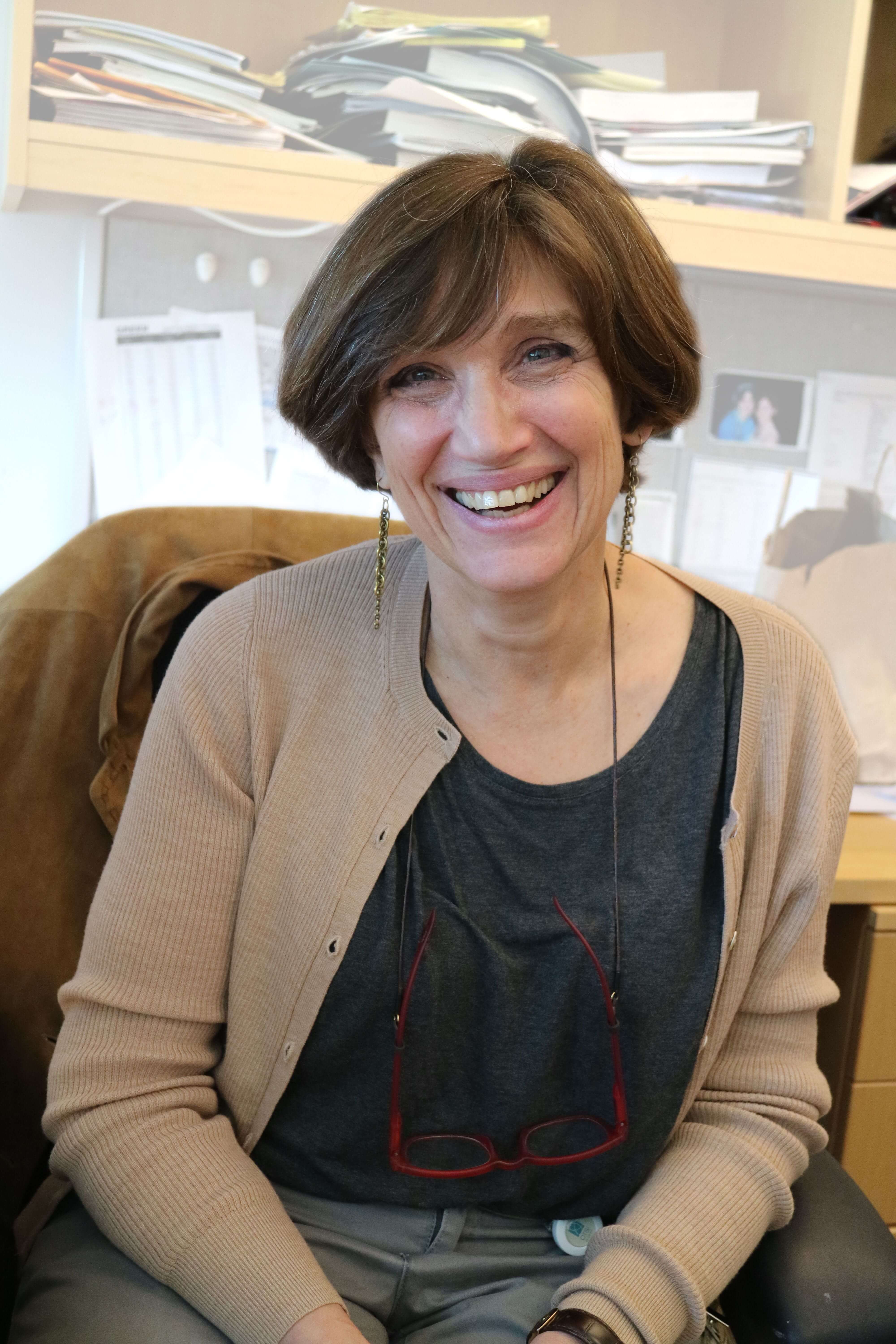
Q: What do you do in your work?
A: We use preclinical models to develop new imaging methods to detect, characterize and monitor response in brain tumors. We collaborate with other investigators to take the new imaging methods to the clinic and apply them to detecting, characterizing and monitoring response in patients.
I also manage between six and eight postdocs, which is lots of fun, because you sort of see the next generation. It makes the science so much better, because if you just think about the science in a vacuum you don’t have the same creativity as when you start talking to other people, and especially younger people who come to a question from a completely different angle and who have completely different baggage.
Q: What’s your favorite part about being a scientist?
A: Ultimately affecting people’s lives.
Q: What have you created or discovered that you are most proud of or excited about?
A: There are a couple of things that have gone into the clinic, and that’s what I’m most excited about. We monitor response to a class of drugs that are called PI3-kinase inhibitors, and that is in the process of going into the clinic in brain tumors. More importantly, it’s also going into the clinic in other tumor types, including breast cancer.
It’s a lot of trial and error and you really have to take the long view. You can’t start a project and think it’s going to be in the clinic in a couple of months because it’s not, which is a good thing because we really want to make sure that what goes into the clinic is reliable without too many false negatives or positives. You need patience.
Q: At the end of the day, why does your work matter?
A: It matters because I value life. I value not only human life, but the quality of human life. It’s not about how many years people live, but also the quality with which the live, especially in cancer patients. If they are going to undergo therapies that are pretty toxic with some very unpleasant side effects, then at least they should be undergoing these treatments knowing that the therapy is at least doing what it is supposed to do and that there’s a reasonable chance that it will extend their lives. It’s this combination of thinking that life and quality of life during the journey really matters. To me it’s about the journey.
Q: Outside of work, what do you do to relax?
A: I garden at home. I have vegetables, fruit trees and lots of flowers. I have some dry-tolerant plants, and others that have been there for 50 years that are not so dry-tolerant. It’s very therapeutic. Gardening too requires the long view.
Q: What situation do you think you’d feel the most out-of-place in? What is something that makes you uncomfortable?
A: If you told me that I needed to travel out into space. I do not want to do that. My husband thinks he’d be like, “Oh my God, yes, I totally want to do this!” and I’m like “I’m not coming with you.” Just the idea of going out and not being sure that I can come back home is what I don’t like.
Q: In 100 years, what do you want to be remembered for?
A: That’s actually something that I’ve thought about a lot. I'd like to be remembered as a decent human being.
Journalism credit: Alexa Rocourt